I tried to explain how stupid nature is to divide the good and bad guys in terms of Britannica’s childish views. People possess a moral system adapted to the African savannah, not for a mega complex world full of capital flows and intertwined super complex moral decisions of who will be born (out of luck, to a particular parent) or who will die (for example, medical neglect, car accidents we could have been devoid of because of AI centuries ago). Every single person on the planet forms what kind of morality we have. But if we should pinpoint someone with power (if we admit power should be exerted over someone), the true criminals wear suits and ties.
These are just petty criminals compared to the true criminals wearing suits and ties
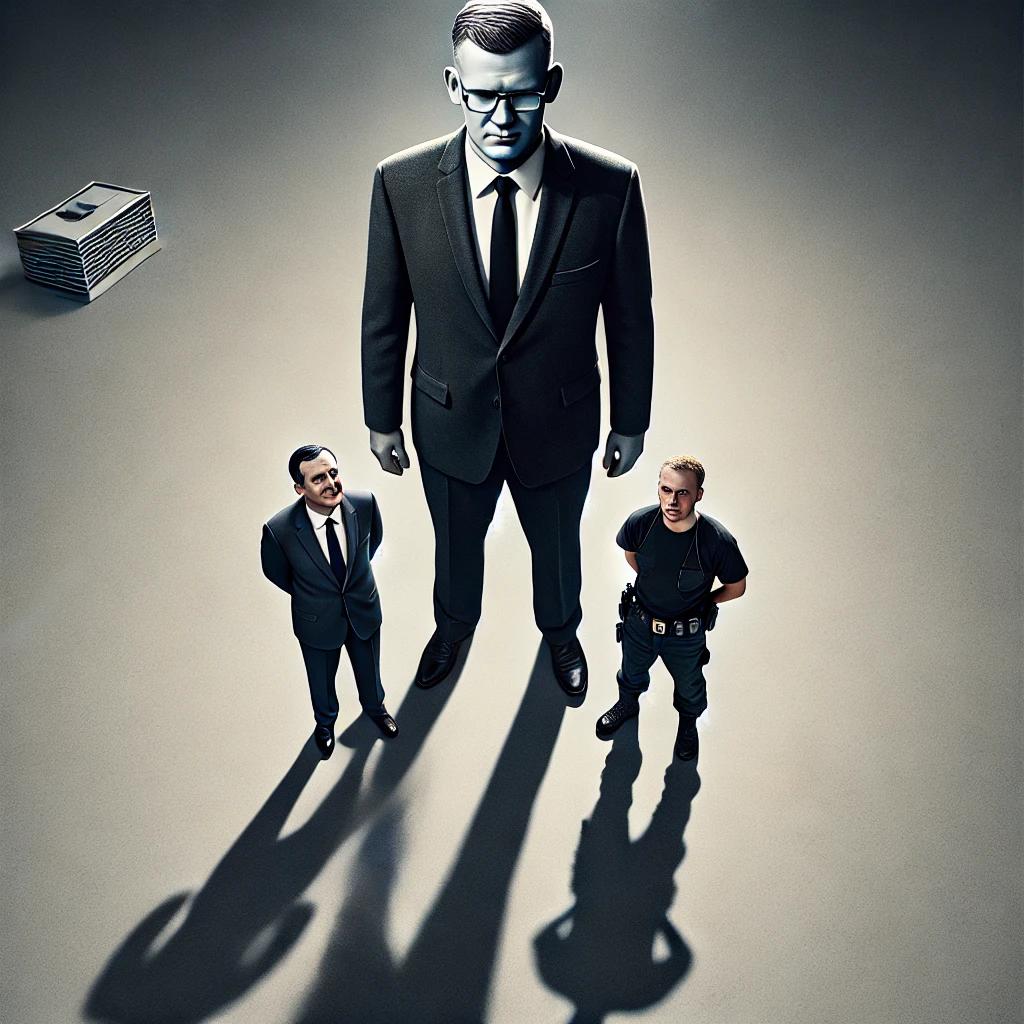
In 1995, Timothy McVeigh orchestrated one of the deadliest terrorist attacks in U.S. history, bombing the Alfred P. Murrah Federal Building in Oklahoma City. A former Army veteran, McVeigh harbored deep anti-government sentiments, which drove him to meticulously plan and execute the attack. On April 19, 1995, he parked a truck filled with explosives outside the building and detonated it. It killed 168 people, including 19 children. The attack sent shockwaves through the nation and highlighted the growing threat of domestic terrorism.
Anders Breivik, a Norwegian far-right extremist, carried out a mass killing in 2011 that left 77 people dead. On July 22, Breivik first set off a car bomb in Oslo, targeting government buildings, which killed eight. He then traveled to the island of Utøya, where a youth camp was being held by Norway’s Labour Party. Disguised as a police officer, Breivik opened fire on unsuspecting campers. The result was the deaths of 69, most of them teenagers. His motivations were rooted in a hatred of multiculturalism and Islam, making his actions both ideologically driven and brutally executed.
Not suits and ties criminals in Pakistan and the US
In India, Ajmal Kasab, a member of the Pakistani militant group Lashkar-e-Taiba, participated in the 2008 Mumbai attacks. Along with nine other terrorists, Kasab launched a coordinated series of bombings and shootings across the city over four days, targeting luxury hotels, a train station, a Jewish center, and cafes. The attacks killed 166 people and injured over 300. Kasab was the only attacker captured alive. And his testimony revealed detailed planning and support from militant organizations in Pakistan, sparking international tensions.
One of the most infamous serial killers in modern history, Ted Bundy, terrorized the United States in the 1970s with a killing spree that spanned multiple states. Bundy was a charming and intelligent man, which allowed him to lure his victims with ease. He confessed to killing at least 30 young women, often employing gruesome tactics like bludgeoning or strangling them before engaging in acts of necrophilia. His ability to escape from custody twice and his subsequent murders further heightened the fear surrounding his crimes. This makes him one of the most notorious criminals in U.S. history.
We are monkeys, but what moral system should we have?
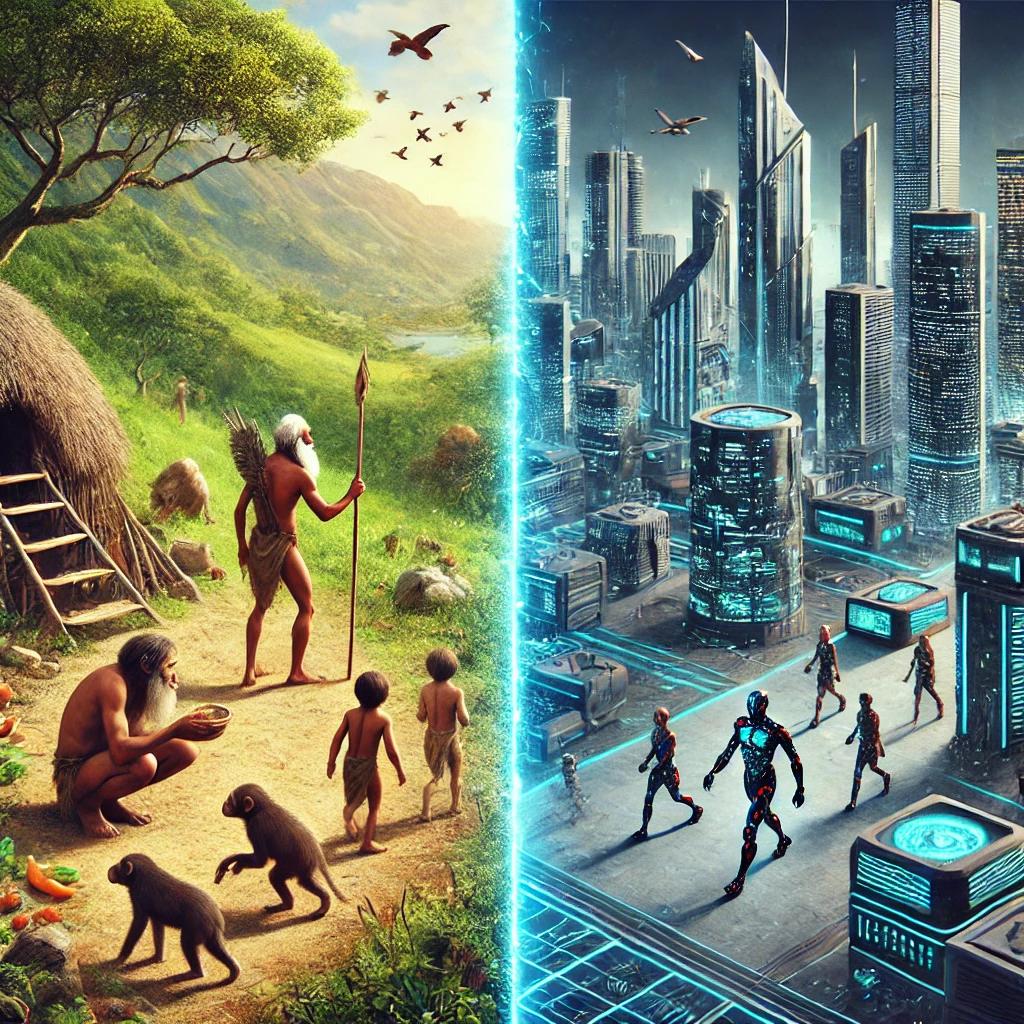
The ideal system is total utilitarianism which, however, is basically inept for evolutionary personality.
Evolutionary theory claims that certain personality traits, like aggression or selfishness, have evolved to help individuals survive and compete for resources.
However, these traits are maladaptive in modern society, leading to antisocial behaviors such as violence or manipulation. Traits like excessive risk-taking, once advantageous for survival, can also result in negative outcomes like reckless behavior or addiction.
Total utilitarianism in my form leads to every decision to alter other decisions for the most individuals being born and have the most ecstatic moments.
Can we have total utilitarianism limited?
Can we have total utilitarianism limited? The answer is yes. There can be alternatives to the current type of capitalism.
So can there be alternatives to moral choices that an AI system could lead to. The whole economic system can be completely different, which would mean a completely different redistribution.
The political landscape should lead contrary to our primitive instincts and be altruistic. The current system, however, isn’t altruistic.
The current redistribution (pensions, welfare) was fought over in a heavy battle and served selfish purposes. The proposed system would ensure the maximum number of consciousness-possessed beings are brought into existence: babies and robots. They should also have a great life ensured, with genetic edits being made.
We are far closer to moral nihilism than perfect morality
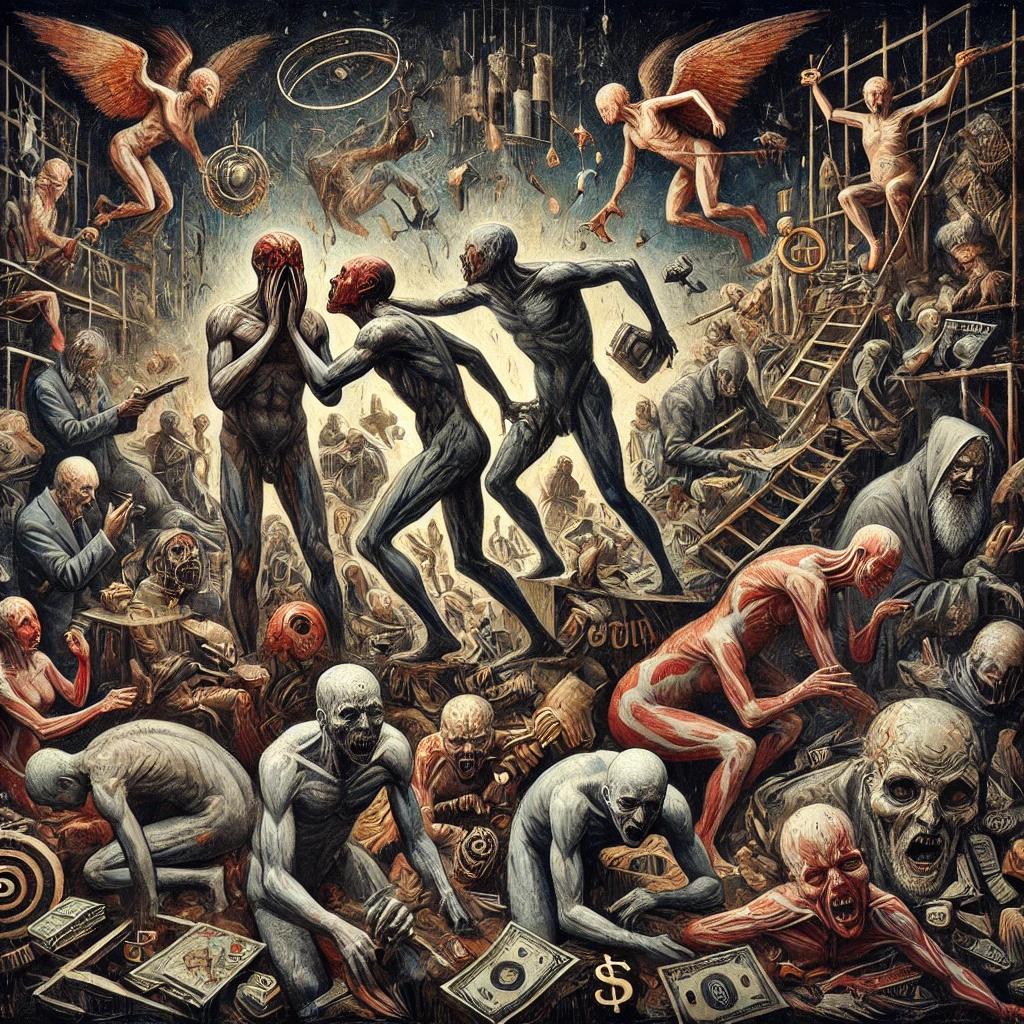
People, homo sapiens, are possessive, don’t put away their money, houses, cars, or stocks to someone else who may benefit in a greater way that they can (for example, have babies, lead happier lives).
They are selfish, help only family members, hoard wealth, exploit every moral system (which is based on who rules us – in our reality, the super-rich) that is possible: human moral systems evolved from basic tribal codes focused on survival and kinship loyalty to complex frameworks of universal human rights and ethics, emphasizing individual autonomy, equality, and global justice.
The progress from serfdom to being able to own something for regular people, going so far as human rights being established was a long way.
So I am not saying our morality is nonsensical, but billions of people across the world suffer from preventable diseases but are unable to afford the necessary healthcare. Many die simply because they lack the money for life-saving treatments, leaving families devastated and communities weakened by the loss of lives that could have been saved. This is particularly dire in countries without universal healthcare, where medical expenses can bankrupt families or force them to choose between food and medicine. Meanwhile, the mental health crisis continues to grow, with millions struggling with anxiety, depression, and other disorders, yet access to quality mental health care is often limited by cost, stigma, or lack of resources.
Some live in abundance, some struggle to survive
Beyond healthcare, access to basic necessities like clean water, food, and electricity remains a daily struggle for billions. Contaminated water sources lead to preventable diseases, malnutrition cripples communities, and lack of electricity stunts economic development and education. These conditions perpetuate poverty, trapping generations in cycles of deprivation. In regions affected by war and genocide, entire populations are wiped out or displaced, as violence, often rooted in political or ethnic conflicts, tears apart the fabric of societies. Refugees and migrants fleeing these dangers face further injustice, often treated as criminals or burdened with unsafe living conditions.
Environmental destruction, driven by unsustainable industries and climate change, exacerbates these issues. Indigenous peoples and rural communities are often displaced from their lands, losing their homes, cultural heritage, and livelihoods to deforestation, mining, and corporate greed. The biodiversity and ecosystems they depend on are destroyed, while wealthier countries and companies profit. This leaves the vulnerable to bear the brunt of the environmental crisis. Meanwhile, marginalized groups – such as women, children, people with disabilities, and LGBTQ+ individuals – continue to face systemic discrimination and violence, limiting their access to education, healthcare, and justice.
Economic inequality is widening globally, with the richest 1% controlling the majority of the world’s wealth while billions barely survive on the margins. People are forced into exploitative labor conditions, often in dangerous industries or as part of modern slavery, for minimal wages. Education remains inaccessible to many, further reinforcing poverty. The governments in authoritarian regimes repress dissent and silence those who advocate for change. The mental health crisis, deepening economic divides, and unchecked environmental destruction represent intertwined crises that leave vulnerable populations struggling for survival in a world increasingly defined by stark inequalities.
Sealed: people really don’t care
The sociopathological phenomena I described above should be the top priority for every voter in tribalistic states with invented nationalism.
But no, eating out, pricy cars are the priority for homo sapiens!
If there are really bad guys (contrary to those unseen), the criminals wear suits and ties
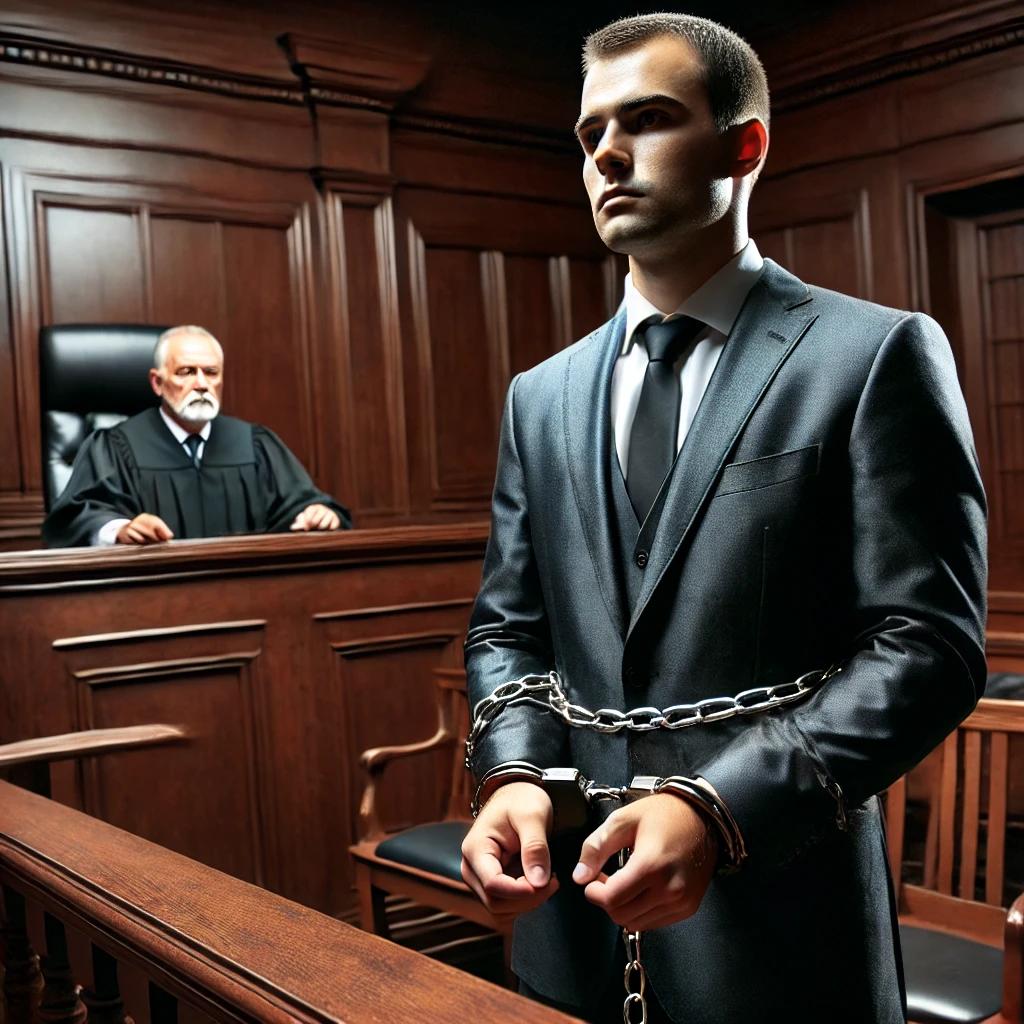
So we have a faulty moral system where someone is the most powerful lead. However, power, thus morally attached responsibility, makes you a greater criminal than those plain criminals I mentioned above.
The true criminals wear suits and ties. Our politicians, voted by plain voters, and their puppet masters are the greatest criminals.
Of course, every political system has hundreds of patron-client cliques clogging the whole political process, so only Cardinal Richelieu can make a difference (when people don’t know or care).
But they can still exert their power (and they have some), be kind of obsessive, and try to, unlike playing golf, resolve the most pressing issues.
US presidents: George W. Bush and Barack Obama – some 4.5 million dead people
Allegations of war crimes or crimes against humanity against George W. Bush (deeply aligned to the Big Oil and the Military-industrial complex) primarily stem from his administration’s actions during the Iraq War, which began in 2003. Critics argue that the invasion of Iraq was based on false premises, particularly the unfounded claims that Saddam Hussein possessed weapons of mass destruction (WMDs) and had ties to terrorist organizations like al-Qaeda. The war, launched without United Nations approval, resulted in hundreds of thousands of Iraqi civilian deaths, widespread destruction, and long-term instability in the region.
Many legal scholars and human rights advocates contend that this preemptive war violated international law, particularly the Geneva Conventions, as it was not in response to an imminent threat, making it an unlawful act of aggression.
Torture as a US human right asset
Additionally, the Bush administration’s use of enhanced interrogation techniques, widely regarded as torture, at facilities like Abu Ghraib and Guantanamo Bay has been another focal point of these allegations. Techniques such as waterboarding, sleep deprivation, and stress positions were employed on detainees, many of whom were held without trial or due process. These practices violated international laws on torture, specifically the United Nations Convention Against Torture, to which the U.S. is a signatory. Human rights organizations argue that the systematic use of such methods, along with the invasion of Iraq, constitutes crimes against humanity, as these actions caused widespread suffering and violated basic human rights on a global scale.
Barack Obama had been a promise, that he would remove those lobbyists, start anew, be better, and cease wars. So finally, being loyal to those lobbyists that have appointed him, he was a failure. Los Angeles Times reads: “U.S. military forces have been at war for all eight years of Obama’s tenure, the first two-term president with that distinction. He launched airstrikes or military raids in at least seven countries: Afghanistan, Iraq, Syria, Libya, Yemen, Somalia and Pakistan.” Post-9/11 wars have contributed to some 4.5 million deaths, some of which remain in the consciousness of our beloved Barack.
Even if they shifted a policy a little bit and saved ten lives, that would make them less criminal.
Finest example – criminals wearing suits and ties: Henry Kissinger
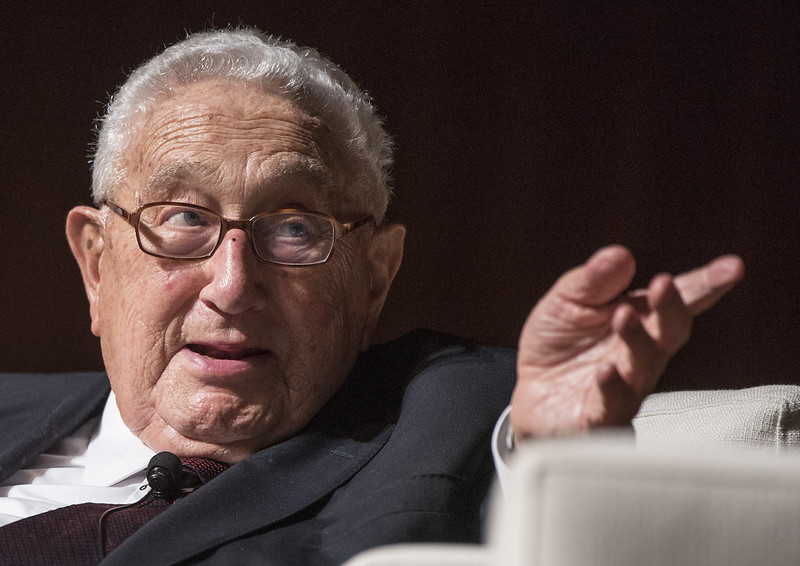
Henry Kissinger, though never elected to any public office (raised to the highest place thanks to religious clientelism), became one of the most influential and controversial figures in U.S. foreign policy during the late 20th century. His tenure as National Security Advisor and Secretary of State under Presidents Nixon and Ford is marred by accusations of severe crimes, particularly involving civilian deaths and violations of international law. One of the most egregious examples is Kissinger’s role in the secret bombing campaigns in Cambodia during the Vietnam War.
Between 1969 and 1973, the U.S. dropped over 500,000 tons of bombs on Cambodia, an undeclared act of war that resulted in the deaths of an estimated 150,000 civilians. This bombing destabilized the region, directly contributing to the rise of the Khmer Rouge, a brutal regime that would later cause the deaths of an estimated 1.7 million Cambodians through genocide. Kissinger’s involvement in expanding the war to Cambodia, without congressional approval and in violation of international laws governing armed conflict, is often cited as a war crime, given the deliberate targeting of civilian areas.
The US likes torture chambers
Kissinger’s actions in Latin America, particularly in Chile, also led to widespread human suffering. In 1973, Kissinger, as part of the Nixon administration, actively supported the military coup that overthrew Chile’s democratically elected president, Salvador Allende. General Augusto Pinochet, who seized power, went on to establish a military dictatorship responsible for the deaths and disappearances of over 3,000 political opponents and the imprisonment and torture of tens of thousands more.
Declassified documents show that Kissinger was fully aware of the human rights abuses occurring in Chile, yet continued to support Pinochet’s regime, prioritizing U.S. geopolitical interests over human rights. Beyond Chile, Kissinger’s involvement in Operation Condor, a coordinated effort by South American dictatorships to eliminate left-wing dissidents, further implicated him in the deaths, disappearances, and torture of thousands across the continent. His involvement in East Timor, where he tacitly approved Indonesia’s invasion in 1975, led to a conflict in which an estimated 200,000 Timorese, roughly a third of the population, were killed or died from starvation. Despite these staggering death tolls and human rights abuses, Kissinger has largely escaped accountability, protected by his powerful lobbying efforts and deep political connections, which shielded him from prosecution for his role in these atrocities.
Bashar al-Assad
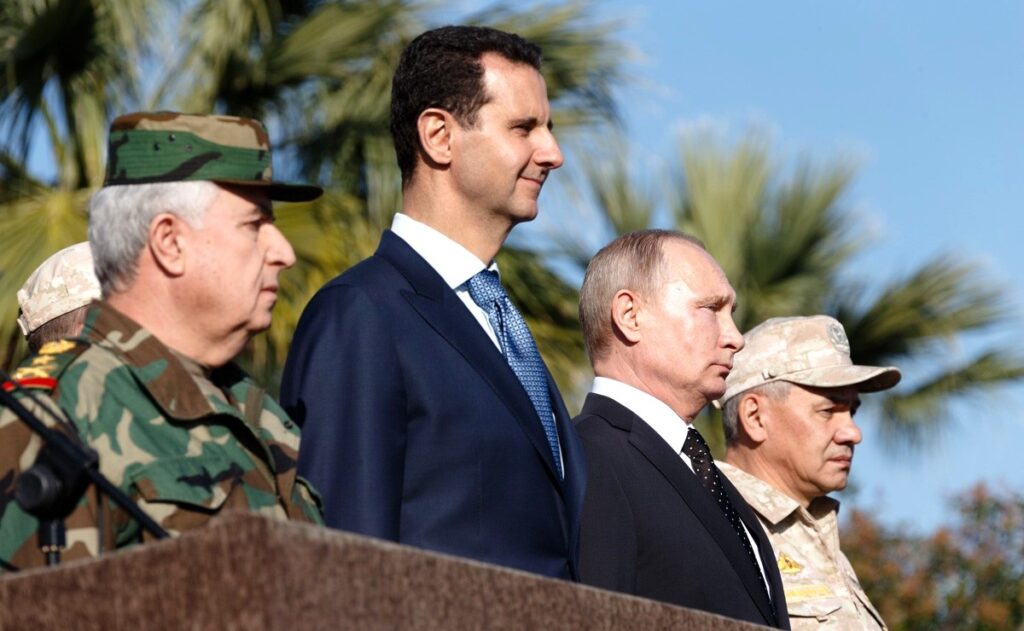
Bashar al-Assad, President of Syria since 2000, stands accused of some of the worst war crimes of the 21st century. His regime’s actions during the Syrian Civil War, which began in 2011, have caused the deaths of hundreds of thousands of civilians. Assad has used extreme violence to maintain his grip on power, disregarding international law and human rights.
He ordered his military to crush peaceful protests in 2011. Security forces opened fire on demonstrators, sparking the conflict. Assad’s government escalated the violence, using tanks, heavy artillery, and airstrikes against civilians in opposition-held areas. Entire neighborhoods were bombed into rubble.
Assad authorized the use of chemical weapons against his own people. In 2013, his forces used sarin gas in an attack on the Damascus suburb of Ghouta. Over 1,000 civilians, including many children, died from exposure to the deadly nerve agent. Despite international condemnation, Assad continued to use chemical weapons in later attacks, such as in Khan Shaykhun in 2017.
He targeted hospitals, schools, and marketplaces. Assad’s forces repeatedly bombed civilian infrastructure, aiming to break the opposition’s will. They attacked hospitals to prevent the wounded from receiving care. His forces bombed schools, killing children, and attacked marketplaces during busy hours, causing maximum civilian casualties.
Starving as a tactic
Assad employed siege tactics to starve opposition-held areas. His regime cut off food, water, and medical supplies to cities like Aleppo and Homs. Civilians trapped inside faced starvation and lack of medical care. Assad used hunger as a weapon of war, forcing entire populations to surrender or die.
His security forces detained, tortured, and killed tens of thousands of Syrians. Assad’s regime arrested anyone suspected of opposing his rule. Many never returned. Inside Assad’s prisons, detainees faced brutal torture. Methods included beatings, electrocution, and sexual violence. Thousands died in custody. Their bodies were disposed of in mass graves.
Despite international outcry, Assad remained defiant. He denied responsibility for war crimes, claiming his actions targeted terrorists. But evidence, including satellite images, witness testimony, and leaked documents, proves otherwise. Assad’s war crimes are not accidents of war. They are part of a deliberate strategy to terrorize and crush his opponents at any cost.
Assad has relied on foreign allies to sustain his war effort. Russia and Iran provided military support, allowing him to maintain control. Russian airstrikes and Iranian militias helped Assad recapture key territory. This foreign backing allowed him to continue his brutal campaign without fear of accountability.
Bashar al-Assad’s legacy is one of destruction and cruelty. His willingness to kill and terrorize his own people to stay in power has left Syria in ruins. His crimes will haunt the country for generations.
Politicians and corruption
The World Economic Forum (WEF) estimates that corruption drains at least 5% of the global economy, which adds up to around $2.6 trillion every year. This includes bribes, embezzlement, and the theft of public funds. It also covers the hidden costs – slower economic growth, wasted resources, and projects that never get off the ground. Corruption stops countries from moving forward and keeps money out of the hands of those who need it most.
The International Monetary Fund (IMF) paints a similar picture. It estimates that public-sector corruption alone costs the world economy between $1.5 and $2 trillion a year, or about 2% of global GDP. When public officials pocket funds meant for essential services, the consequences are severe. Money that should provide clean water, electricity, or healthcare instead lines the pockets of corrupt politicians. Entire communities suffer, especially in poorer countries. People go without basic needs while those in power get richer.
Corruption in third world countries prevents development
In developing countries, corruption is a daily reality. Politicians siphon off money meant for water projects, schools, or hospitals. The result? Millions live without clean water, regular electricity, or access to healthcare. Hunger increases because funds meant for farmers disappear. Families remain trapped in poverty, unable to escape the endless cycle of corruption that steals their future.
In wealthier nations, corruption plays out differently but still hurts. Politicians and their wealthy allies manipulate laws, making sure policies benefit them, not the public. Crony capitalism, insider deals, and unethical lobbying mean a few individuals profit while the rest pay more for electricity, fuel, or healthcare. Trust in government collapses as people see leaders put themselves first. Corruption shakes the foundations of democracy, making people lose faith in the system.
It’s not just a local problem. Corruption undermines international progress. Governments that could lead on issues like climate change or global poverty are too busy enriching themselves. Foreign investors pull out, aid money vanishes, and poor governance leaves nations vulnerable to crises. When corruption destabilizes one country, the effects ripple out, hurting global trade and economic cooperation.
The real tragedy is that politicians in suits and ties are often the source of the problem. They claim to lead, but many use their positions to steal, manipulate, and profit. Behind closed doors, deals are made, money is exchanged, and the public pays the price. These politicians may talk about fighting corruption, but they are the very ones keeping it alive.
The kind of capitalism we live in is criminal itself
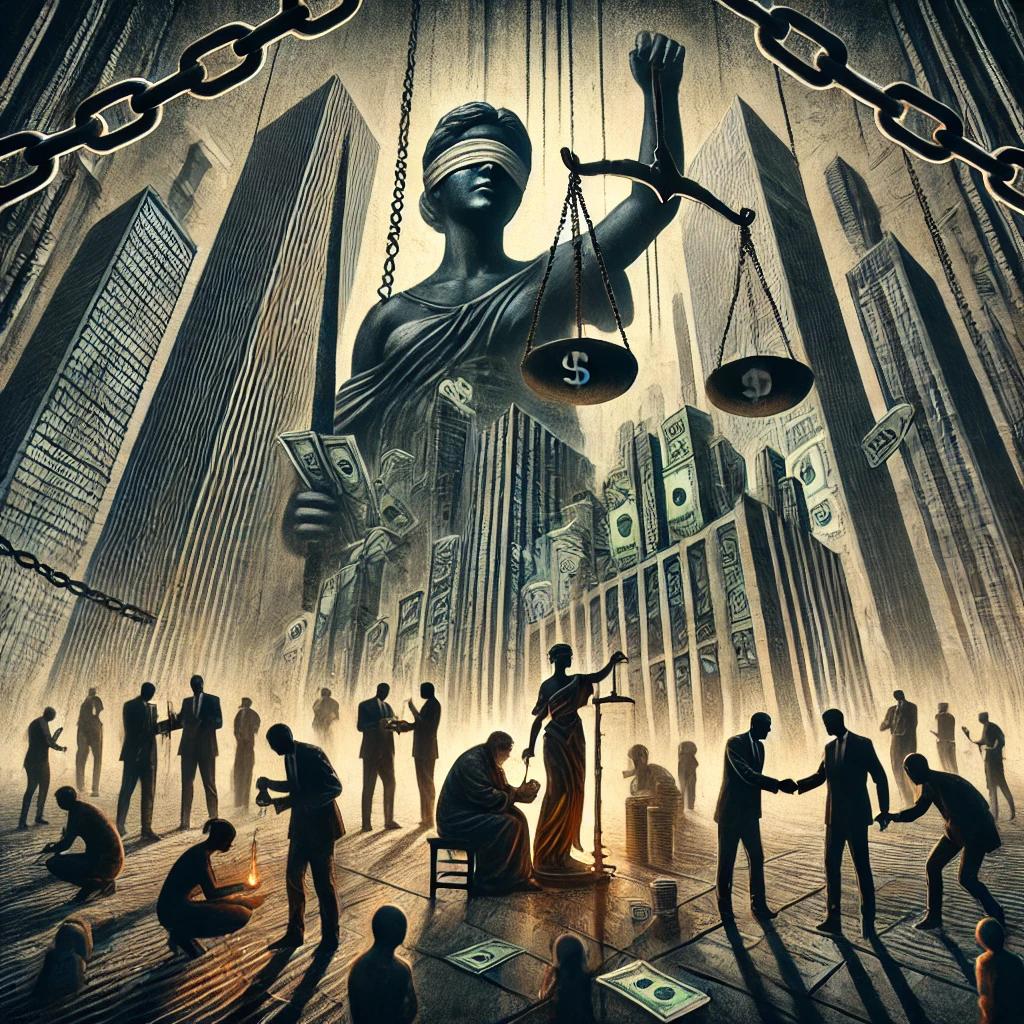
Capitalism can be a vital system, but not in its present neo-liberal form where 1 % owns everything.
Investment bankers, financial analysts, asset managers, stockbrokers, hedge fund managers, venture capitalists, private equity professionals, credit analysts, corporate treasurers, financial planners, wealth managers, actuaries, compliance officers, auditors, accountants, risk managers, insurance underwriters, economists, tax consultants, portfolio managers, financial advisors, loan officers, mortgage brokers, commercial bankers, central bankers, securities traders, market analysts, quantitative analysts (quants), real estate investors, corporate finance officers (CFOs), investment advisors, financial regulators, commodity traders, investment researchers, equity analysts, credit risk officers, retail bankers, personal bankers, trade finance specialists, financial technology (fintech) developers, and investment strategists.
I am truly sorry, but the majority of these professions are just like criminals wearing suits and ties.
Criminals wear suits and ties: Our beloved super-rich families, their bankers and international lobbyists
In my humble opinion, the worst criminals wearing suits and ties are the bankers and the super-rich families behind with multinational lobbyists above them. Their existence is evidence-based.
It is them who make political decisions, not the miserable politicians who are nothing but clowns lasting 4 years.
The super-rich are sitting on hundreds of trillions of dollars, yet the world is struggling.
Mental health crisis, lack of access to clean water, food insecurity and hunger, torture and human rights abuses, climate change and Global warming, poverty and inequality, forced displacement and refugees, corruption in governments and institutions, homelessness, unemployment and job insecurity, gender inequality and discrimination, access to healthcare, child labor and exploitation, racial discrimination and systemic racism, access to education, pollution of air, water, and soil, deforestation and habitat loss, political instability and conflict, human trafficking and modern slavery, drug addiction and substance abuse, opioid epidemic, terrorism and violent extremism, cybersecurity threats and data privacy, economic inequality and wealth gaps, aging populations and healthcare burdens.
Struggles they can prevent
Also, lack of affordable housing, corporate exploitation of labor, animal cruelty and poaching, rising authoritarianism, food waste and inefficiency in food distribution, misinformation and fake news, refugee crises and asylum seekers, biodiversity loss and species extinction, energy security and fossil fuel dependence, waste management and plastic pollution, armed conflicts and civil wars, overpopulation and urban overcrowding, access to reproductive rights and family planning, militarization and arms trade, decline of democracy and rule of law, political corruption and lack of accountability, lack of sanitation and hygiene infrastructure, religious intolerance and sectarian violence, economic crises and inflation, internet censorship and digital rights, violence against women and children, rise in xenophobia and nationalism, income insecurity and the gig economy.
You may, of course, object that even the middle or upper class (I mean in the rich countries) can pay the cheque. But they are poor compared to those monetary giants.
They own the vast majority of the world’s assets, yet don’t give away their share
Sitting on hundreds of trillions of dollars (sic!), the super-rich families never give away their share (although there are some exceptions).
Their banks chain people with mortgages and loans. They invest people’s money even though people see no profits from it, and, of course, the banks (without being sponsored by the super-rich families behind them) are never able to return the entire sum at the same time.
They start wars, commence or end political careers, use the media to manipulate people, suppress foreign aid, and prevent politicians from fully pushing the human rights agenda (they only push the parts that serve the rich).
With some exceptions, they make the world messy – partly thanks to the stupid voters.
These people, unlike losers like Breivik, petty criminals, or robbers, are the true criminals, but they wear suits and ties.

Leave a Reply